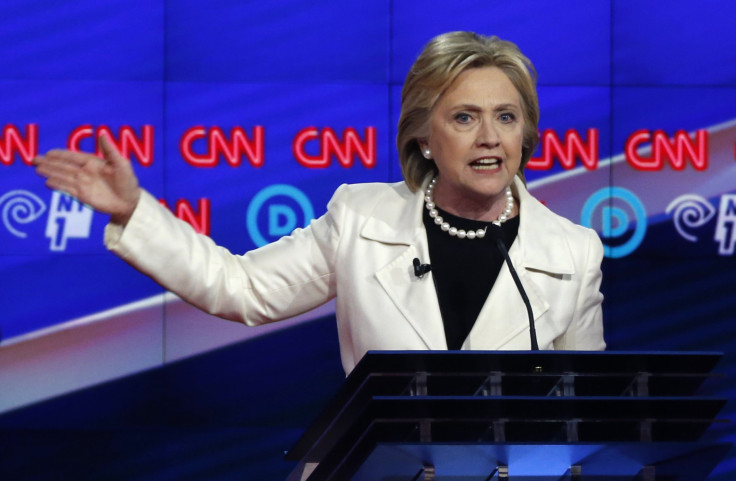Hillary Clinton Touted Coal Development As Secretary Of State

Hillary Clinton and Bernie Sanders clashed on the issue of climate change during a presidential debate Thursday night, with the former secretary of state acknowledging her aggressive push for natural gas development across the planet, yet defending the policy as a necessary “bridge” to wean the world off its reliance on coal. While she was at the State Department, however, Clinton and the agency at times expressed support for coal development — and for a federal government agency that has been criticized for supporting such development throughout the world.
With both candidates aggressively courting environmental-minded Democratic primary voters, Clinton was asked by CNN debate moderator Errol Lewis why as secretary of state she was a strong advocate for expanding hydraulic fracturing — a controversial natural gas extraction process that is banned in New York. She replied that “ the world is still burning way too much coal” and said her support for developing natural gas — also a fossil fuel that contributes to climate change — was designed to reduce the world’s reliance on other more dirty fuels.
"I don't think I've changed my view on what we need to do to go from where we are, where the world is heavily dependent on coal and oil, but principally coal, to where we need to be, which is clean renewable energy, and one of the bridge fuels is natural gas,” she said. “And so for both economic and environmental and strategic reasons, it was American policy to try to help countries get out from under the constant use of coal, building coal plants all the time.”
However, Clinton and her State Department periodically touted coal development while she ran that agency.
In her first year as secretary of state, Clinton told Pakistani leaders that "many of your neighbors are producing coal faster than they can even talk about it — it’s unfortunate, but it’s a fact that coal is going to remain a part of the energy load until we can transition to cleaner forms of energy.”
She then promoted the benefits of coal development.
“There is no doubt that energy is at the heart of many of the economic problems that Pakistan faces – the unreliability, the erratic cross-structure, the failure to capture the full load that is produced,” she said during a trip to Lahore. “So getting the resources to exploit your coal as opposed to being dependent upon imported energy is a choice for you to make, but it is certainly a choice that your neighbors have made. And that’s something that should attract foreign investment and should attract capital investment within your own country.” She added: “We’re working hard to come to some framework before Copenhagen, but coal will be, for the foreseeable future, part of the energy mix.”
In 2010, South Africa requested a World Bank loan for a huge coal-fired power plant. As part of that initiative, the country lobbied the Clinton-led State Department, according to emails released by that agency that were first flagged by the environmental website DeSmogBlog.
In that correspondence, Clinton’s aides note that “The South African Foreign Minister has asked to speak with the Secretary today to seek [U.S. government] support for a large World Bank loan for a [South African] coal-fired power plant.” Clinton later told her aides that in her subsequent discussion with the minister, she learned “they intend to use variety of energy sources in the future but this project is essential to deliver electricity — which I think our experts agree is right.” Days later, the United States government — the bank’s largest shareholder — abstained from using its power to try to block the World Bank loan, and it was approved over the objections of environmental groups.
In a 2011 report about Afghanistan — introduced with a signed statement from Clinton — the State Department said that country’s “extractive industries may be the most promising long-term source of future Afghan revenue.” The report specifically touted, among other things, “coal resources.”
Clinton also has been a big booster of the Export-Import Bank, despite that federal agency being criticized for its support of coal projects In 2010 she said, “I'd like to put ExIm Bank on steroids because I think it does so much good work for American companies, and I want American businesses to know that.”
© Copyright IBTimes 2024. All rights reserved.






















